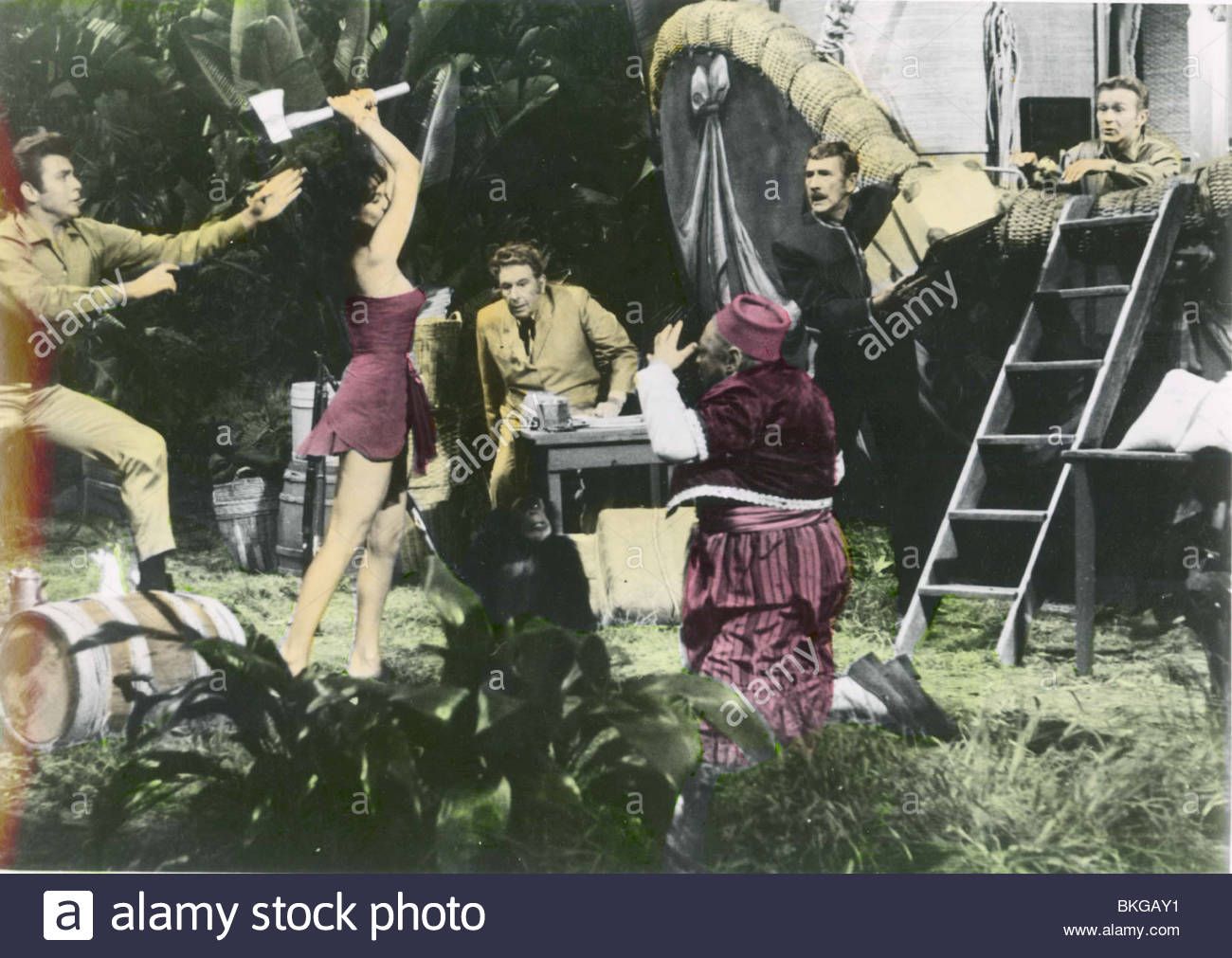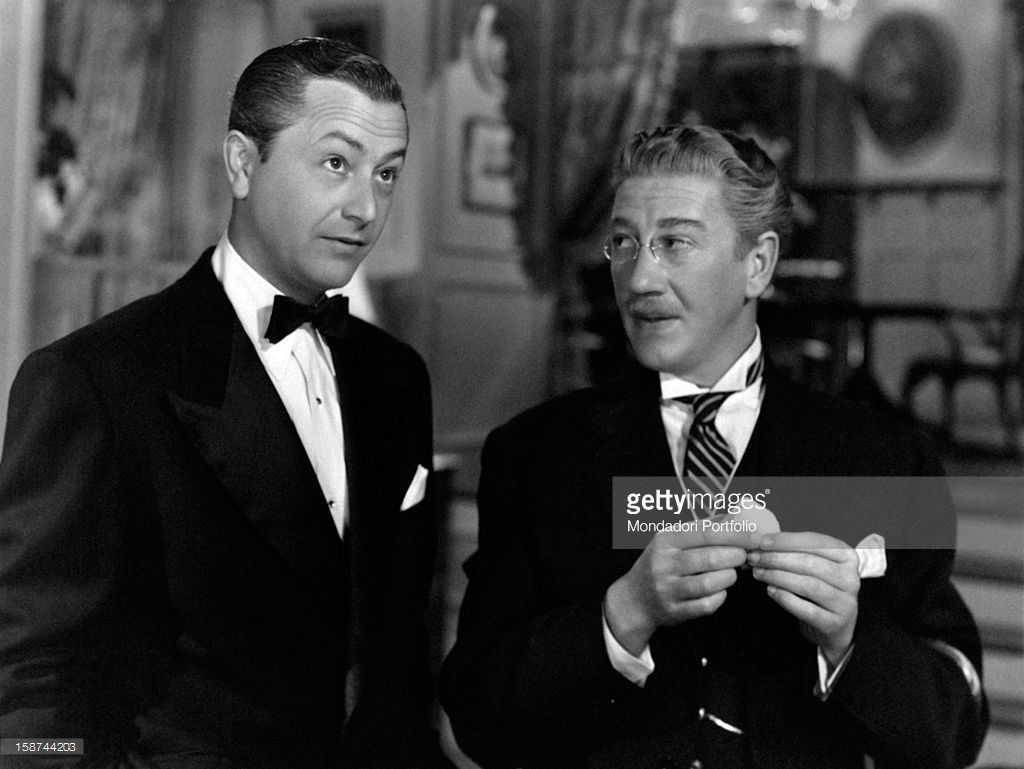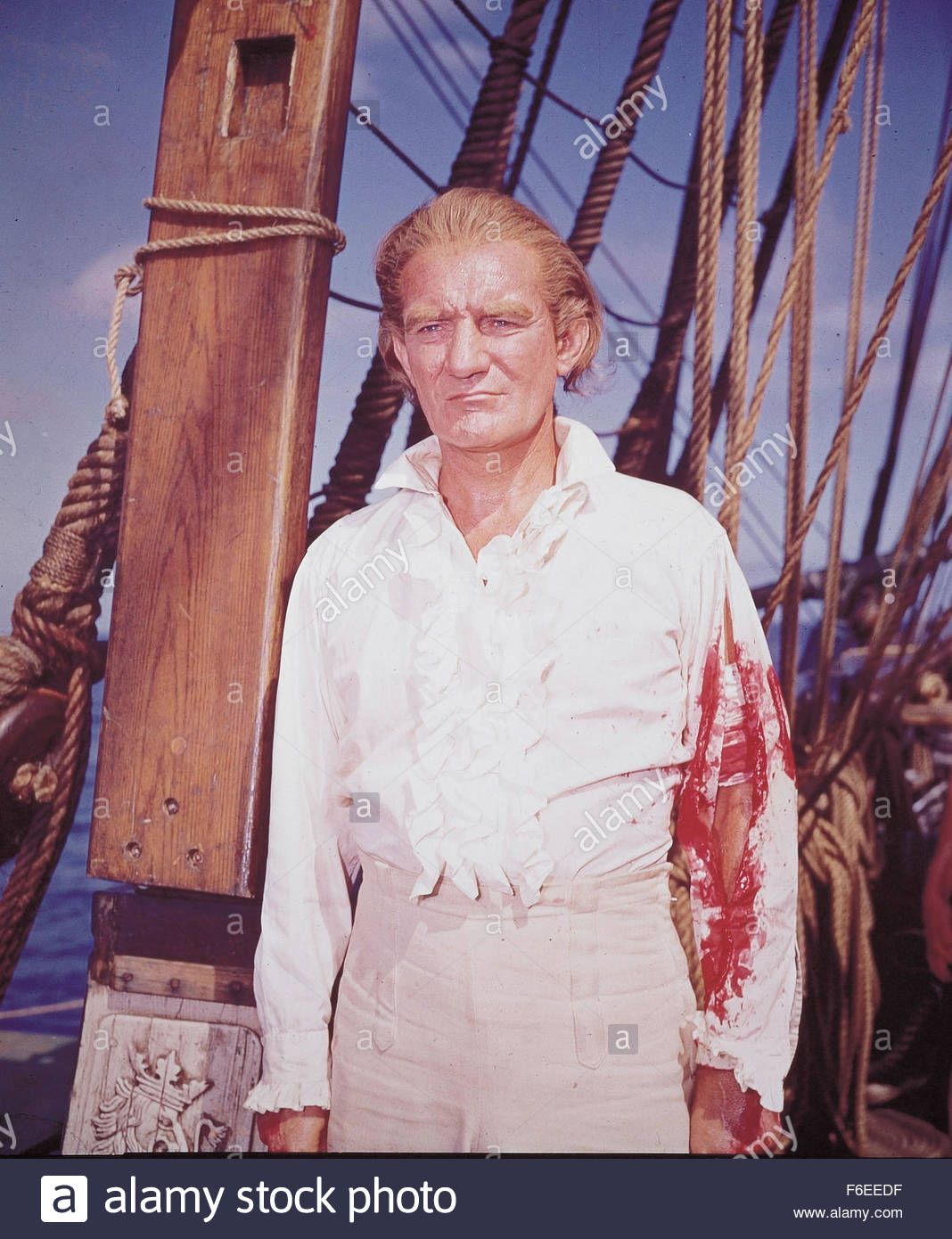Richard Haydn: The Unforgettable Voice & Character Actor
Richard Haydn was a name synonymous with distinctive character acting and an unforgettable voice, a true gem in the golden age of Hollywood. From his iconic vocal performance as the wise, philosophical Caterpillar in Disney's animated classic *Alice in Wonderland* to his memorable on-screen roles, Haydn possessed a unique charm and an instantly recognizable delivery that set him apart. His career spanned decades, showcasing a remarkable versatility across film, television, radio, and theatre, leaving an indelible mark on audiences worldwide.
His ability to inhabit a wide array of characters, often with a dry wit and an air of refined eccentricity, made him a sought-after talent. Whether he was playing the charmingly cynical Max Detweiler in *The Sound of Music*, the precise Professor Oddly in *Ball of Fire*, or the stately Emperor Franz Josef in *The Emperor Waltz*, Richard Haydn consistently delivered performances that were both nuanced and captivating. This article delves into the life and career of this extraordinary performer, exploring his most celebrated roles and the lasting legacy of his unique artistry.
Table of Contents
- Richard Haydn: A Biographical Sketch
- The Voice That Defined a Generation: The Caterpillar and Beyond
- Versatility on the Silver Screen: Iconic Film Roles
- Beyond the Big Screen: Radio, TV, and Theatre Contributions
- A Legacy Endures: Haydn's Lasting Impact on Cinema
- Critical Acclaim and Public Perception
- The Man Behind the Characters: A Glimpse into Richard Haydn's Persona
Richard Haydn: A Biographical Sketch
Born George Richard Haydon on March 10, 1905, in Camberwell, a vibrant district within the London Borough of Southwark, Richard Haydn’s journey into the performing arts began across the Atlantic. His early life in London provided a foundation for the refined demeanor and distinctive vocal qualities that would later become his trademarks. While many actors find their niche early on, Haydn’s career was a testament to gradual ascent and consistent excellence, built on a foundation of theatrical training and a keen observational eye for human eccentricities.
Before making his mark in Hollywood, Haydn honed his craft on the British stage, developing the precise comedic timing and the unique "nasal delivery" that would define his screen persona. This particular vocal quality, often described as aristocratic and slightly world-weary, became instantly recognizable to audiences. His transition to American entertainment saw him quickly establish himself as a versatile character actor, someone who could effortlessly slip into roles ranging from the stern to the whimsical, always with an underlying intelligence and often, a touch of droll humor. His presence in any production, no matter how brief, guaranteed a memorable performance, elevating the material and captivating viewers with his distinct presence.
Personal Data & Biodata
| Attribute | Detail |
|---|---|
| Full Name | George Richard Haydon |
| Born | March 10, 1905 |
| Died | April 25, 1985 (aged 80) |
| Nationality | British |
| Occupation | Actor, Comedian, Voice Artist |
| Known For | Distinctive nasal delivery, character acting, voice of the Caterpillar |
| Notable Film Roles | Max Detweiler in *The Sound of Music*, Caterpillar in *Alice in Wonderland* (voice), Herr Falkstein in *Young Frankenstein*, Professor Oddly in *Ball of Fire*, Emperor Franz Josef in *The Emperor Waltz* |
| Active Years | 1930s – 1970s |
The Voice That Defined a Generation: The Caterpillar and Beyond
Perhaps no single role cemented Richard Haydn's vocal legacy more firmly than his portrayal of the Caterpillar in Walt Disney's 1951 animated masterpiece, *Alice in Wonderland*. His voice, with its languid, almost condescending drawl and signature nasal delivery, perfectly captured the enigmatic and philosophical nature of the hookah-smoking insect. The Caterpillar's famous line, "Who are you?" delivered with Haydn's characteristic elongation of vowels and a world-weary tone, became an instant classic, resonating with generations of viewers. This role was not just a voice-over; it was a masterclass in vocal characterization, where every syllable was imbued with personality, wisdom, and a touch of the absurd. It demonstrated Haydn's exceptional ability to convey complex emotions and intellect through sound alone, making the animated character feel remarkably alive and memorable.
The impact of his voice extended far beyond Wonderland. While the Caterpillar remains his most iconic vocal performance, his unique speaking style was a consistent element across his live-action roles as well. His nasal delivery wasn't a limitation but a distinctive tool, allowing him to portray characters who were often intellectual, slightly aloof, or comically pompous. It gave his performances an immediate, recognizable quality, making him stand out in an industry filled with talented actors. Whether he was delivering a witty one-liner or a profound observation, Haydn's voice was unmistakable, adding layers of depth and humor to every line he spoke. This vocal signature became a key part of the Richard Haydn brand, ensuring that even if audiences couldn't immediately recall his name, they would certainly remember his voice.
Versatility on the Silver Screen: Iconic Film Roles
While his voice was unforgettable, Richard Haydn’s physical presence and acting prowess on screen were equally compelling. He appeared in a remarkable array of films, showcasing his ability to transition seamlessly between genres and character types. One of his most beloved roles came in the form of Max Detweiler, the charming and pragmatic impresario in the 1965 cinematic classic, *The Sound of Music*. As Max, Haydn brought a delightful blend of wit, cynicism, and ultimately, warmth, serving as a comedic foil and a crucial supporting character to the von Trapp family. His performance added a layer of sophisticated humor to the heartwarming musical, making Max an enduring fan favorite.
Beyond the Alps, Haydn’s filmography boasts other significant contributions. He is also best known for his role as Herr Falkstein in Mel Brooks's 1974 horror-comedy masterpiece, *Young Frankenstein*. In this film, Haydn, with his signature deadpan delivery, contributed to the film's unique blend of homage and parody. Earlier in his career, he appeared in the 1941 screwball comedy *Ball of Fire*, where he played Professor Oddly, one of a group of eccentric academics. His portrayal was a perfect fit for the film's intellectual yet comedic tone, highlighting his knack for playing intelligent, slightly bewildered characters. Another notable performance was as Emperor Franz Josef in the 1948 musical film *The Emperor Waltz*, where he once again demonstrated his ability to embody figures of authority with a touch of charming formality. These roles, among many others, paint a picture of an actor who was not only versatile but also consistently excellent, making every character he played uniquely his own.
From Comedy to Drama: A Master of Nuance
Richard Haydn’s career was a testament to his mastery of nuance, allowing him to traverse the spectrum from uproarious comedy to subtle drama with effortless grace. He understood that true comedic genius often lies in understated delivery and a keen understanding of character, rather than broad gestures. His performances were frequently characterized by a dry wit, a raised eyebrow, or a perfectly timed pause that could elicit more laughter than a slapstick routine. In films like *The Sound of Music*, his comedic timing as Max Detweiler was impeccable, offering a much-needed dose of reality and cynical humor amidst the musical's inherent sweetness. He could deliver a cutting remark with such elegance that it became more amusing than offensive, showcasing his ability to blend charm with sharp observation.
Yet, Haydn was not confined to purely comedic roles. He possessed an underlying dramatic capability that allowed him to infuse his characters with depth and believability, even when they were primarily designed for laughs. His portrayal of the Emperor in *The Emperor Waltz*, for instance, required a certain regal gravitas, which he delivered convincingly. Even in his more overtly comedic roles, there was often a subtle vulnerability or an intellectual curiosity that made his characters feel fully fleshed out. This ability to blend humor with genuine human emotion, to be both funny and poignant, is what truly set Richard Haydn apart. He was a character actor who understood that even the most eccentric characters needed a core of truth, making his performances resonate on multiple levels with audiences.
Beyond the Big Screen: Radio, TV, and Theatre Contributions
While Richard Haydn is primarily celebrated for his film work, his artistic contributions extended far beyond the silver screen. He was a true multi-platform performer, with a significant presence in radio, television, and theatre, each medium allowing him to showcase different facets of his considerable talent. In the golden age of radio, Haydn was a familiar voice, his distinctive delivery making him a sought-after performer for various programs. Radio demanded a unique skill set, relying solely on vocal expression to convey character and emotion, a challenge that Haydn, with his precise articulation and expressive range, met with exceptional success. His radio work further solidified his reputation as a master of vocal characterization, allowing him to create vivid mental images for listeners purely through sound.
As television emerged as a dominant medium, Haydn seamlessly transitioned, appearing in numerous TV shows and specials throughout his career. From guest spots on popular series to television films, he brought his signature style to the small screen, reaching an even broader audience. His presence on television allowed viewers to experience his unique blend of wit and charm in their homes, making him a beloved figure across different generations. Furthermore, his roots in theatre remained strong. The stage was where he initially honed his craft, developing the discipline and presence required for live performance. His theatrical background undoubtedly informed his screen acting, lending a certain precision and command to his roles. This extensive work across radio, TV, and theatre underscores Richard Haydn's versatility and his enduring commitment to the performing arts, proving he was much more than just a film actor.
The Art of the Character Actor: Haydn's Unique Style
Richard Haydn epitomized the art of the character actor, a performer who, while perhaps not always the leading man, became indispensable for their ability to bring unique personalities to life, often stealing scenes with their distinctive style. His unique approach to acting was characterized by several key elements that made him instantly recognizable and deeply memorable. Foremost among these was his signature nasal delivery, which wasn't merely a vocal quirk but a carefully cultivated tool that conveyed a sense of sophisticated detachment, dry wit, or a slightly bemused superiority. This voice became an extension of his characters, imbuing them with an intellectual or aristocratic air, even when playing more common folk.
Beyond his voice, Haydn's physical mannerisms were equally precise and effective. He often employed subtle gestures, a raised eyebrow, a dismissive wave of the hand, or a perfectly timed sigh, all contributing to the overall persona of his characters. His comedic timing was impeccable, built on pauses and inflections that maximized the humor in his lines. He excelled at playing characters who were often intelligent, slightly fussy, or comically exasperated, finding the humor in their rigid adherence to logic or their bewilderment at the world around them. This distinctive style, a blend of vocal precision, subtle physicality, and sharp comedic timing, allowed Richard Haydn to create a gallery of unforgettable characters, each one a testament to his unique artistic vision and his profound understanding of human nature.
A Legacy Endures: Haydn's Lasting Impact on Cinema
Richard Haydn's career may have spanned several decades, but his impact on cinema and the broader entertainment landscape continues to resonate today. His performances, characterized by their distinctiveness and unwavering quality, have ensured his place in the pantheon of beloved character actors. The enduring popularity of films like *The Sound of Music* and *Alice in Wonderland* means that new generations continue to discover his talent, captivated by his unique voice and memorable portrayals. His ability to elevate supporting roles into pivotal, scene-stealing performances set a standard for character acting, demonstrating that a strong ensemble is crucial to a film's success.
Haydn's influence can be seen in the way subsequent character actors approach their craft, emphasizing the importance of a unique voice, precise mannerisms, and a deep understanding of comedic timing. He proved that an actor doesn't need to be the romantic lead to leave an indelible mark; sometimes, it's the quirky, intelligent, or droll supporting player who truly captures the audience's imagination. His legacy is not just in the roles he played, but in the standard of excellence he maintained throughout his diverse career. He was a master of his craft, and his work continues to be a source of enjoyment and inspiration, reminding us of the power of a truly distinctive performance.
Where to Experience Richard Haydn's Work Today
For those eager to delve deeper into the remarkable career of Richard Haydn, his extensive filmography and television appearances are readily accessible across various platforms. Many of his most iconic films, such as *The Sound of Music*, *Alice in Wonderland*, and *Young Frankenstein*, are widely available on popular streaming services, often requiring a subscription or a one-time rental/purchase. These platforms offer a convenient way to experience his memorable performances in high definition, allowing viewers to appreciate the nuances of his acting and his distinctive vocal delivery.
Beyond streaming, classic film channels on cable television frequently air his works, providing an opportunity to catch his older films that might not be as readily available elsewhere. For the true cinephile, physical media like DVDs and Blu-rays of his films are also available for purchase, offering a more permanent addition to a personal collection. Additionally, for those interested in his broader career, online archives and classic radio show repositories might offer glimpses into his work in radio. Exploring Richard Haydn's filmography is a journey through a significant period of Hollywood history, offering a chance to witness a master character actor at the height of his powers.
Critical Acclaim and Public Perception
Throughout his career, Richard Haydn consistently garnered positive critical acclaim for his distinctive performances. Critics frequently lauded his unique vocal delivery and his ability to inject intelligence and wit into every role, no matter how small. He was often described as a "master of the dry wit" or praised for his "inimitable style," indicating that his particular brand of humor and characterization was highly valued within the industry. Reviewers often highlighted how his presence could elevate a scene, turning a simple exchange into a memorable moment through his precise timing and subtle expressions.
The public's perception of Richard Haydn mirrored this critical appreciation. Audiences found his characters endearing, often remembering him more for his specific roles and his voice than for his name alone. His portrayal of the Caterpillar, for instance, became so iconic that it transcended the film itself, becoming a cultural touchstone. Similarly, his Max Detweiler in *The Sound of Music* resonated deeply with viewers who appreciated his pragmatic charm and humorous cynicism. He was a beloved figure who consistently delivered reliable, high-quality performances that entertained and delighted, solidifying his status as a cherished character actor in the hearts of moviegoers for generations.
The Man Behind the Characters: A Glimpse into Richard Haydn's Persona
While Richard Haydn was celebrated for his on-screen personas, often portraying characters with a certain aristocratic air or droll wit, the man behind these roles maintained a relatively private life. Unlike many Hollywood stars who sought the limelight beyond their work, Haydn seemed content to let his performances speak for themselves. This dedication to his craft, rather than to personal publicity, suggests a professional who was deeply committed to the art of acting. His focus was on the meticulous development of his characters, ensuring that each one, no matter how brief their appearance, was fully realized and memorable. This quiet professionalism is a testament to his artistic integrity and his understanding that the performance itself was the most important aspect of his contribution.
His colleagues often spoke of his intelligence and his dry sense of humor, qualities that clearly translated into his on-screen work. There was an understated elegance about him, both in his acting and, presumably, in his personal demeanor. This reserved yet captivating presence allowed him to embody a wide range of roles convincingly, from the whimsical to the authoritative. While specific anecdotes about his private life are not widely publicized, his consistent output of high-quality, distinctive performances speaks volumes about his discipline, his talent, and his unwavering commitment to his profession. Richard Haydn was, in essence, a true artist who found his voice and his place by perfecting the subtle art of characterization, leaving a legacy that continues to entertain and inspire.
Conclusion
Richard Haydn was a truly singular talent in the world of entertainment, a character actor whose unique voice and precise comedic timing left an indelible mark on generations of audiences. From the philosophical puffs of the Caterpillar in *Alice in Wonderland* to the charmingly cynical observations of Max Detweiler in *The Sound of Music*, his performances were consistently memorable, imbued with a distinctive wit and an unmistakable presence. His versatility across film, radio, television, and theatre showcased a deep commitment to his craft, making him an invaluable asset to every production he graced. Haydn’s ability to transform supporting roles into scene-stealing highlights, always with his signature nasal delivery and intelligent nuance, cemented his legacy as one of Hollywood's most beloved and enduring character actors.
His contributions remind us of the profound impact a performer can have, not just through leading roles, but through the mastery of character. Richard Haydn’s work continues to be celebrated, proving that true artistry transcends time. We encourage you to revisit his classic films and discover the unique charm of this extraordinary performer. What is your favorite Richard Haydn role, and what makes his performances so unforgettable to you? Share your thoughts and memories in the comments below, and explore other articles on our site to delve deeper into the lives of Hollywood's iconic figures.

Pictures of Richard Haydn

Pictures of Richard Haydn

Pictures of Richard Haydn